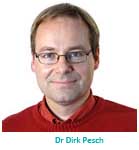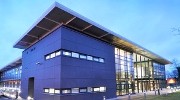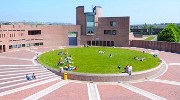CIT Nimbus Centre shares €47M research fund

Published on: Thursday, 01 May 2014
The Minister for Jobs, Enterprise and Innovation, Richard Bruton TD and the Minister for Research and Innovation Seán Sherlock TD today announced €47 million in funding for pioneering research initiatives, delivered by the Department of Jobs, Enterprise and Innovation, through the Science Foundation Ireland Investigators Programme. The Programme will provide funding over a three to five year period, for 36 research projects involving over 200 researchers. Funding for each project will range from €400,000 to €3.1 million.
 The funding allocated to the CIT Nimbus Centre is for a project called SURF: Service-centric networking for urban-scale feedback systems which will be led by Dr Dirk Pesch, Principal Investigator and Nimbus Centre Head. This latest funding for the Nimbus Centre from SFI strengthens Nimbus’s position as a leader in the Smart Cities space, providing funding to further develop the exciting advances in that area produced by the centre. CIT will collaborate not only with TCD in this area but also with industry such as EMC, Intel, and UTRC. The smart cities space is a huge global opportunity and needed to deal with the ever increasing urbanisation and the expected 70% of the world’s population that are expected to be living in cities by 2050. The global business opportunity in this space is estimated to be excess of $1.5trillion by 2025.
The funding allocated to the CIT Nimbus Centre is for a project called SURF: Service-centric networking for urban-scale feedback systems which will be led by Dr Dirk Pesch, Principal Investigator and Nimbus Centre Head. This latest funding for the Nimbus Centre from SFI strengthens Nimbus’s position as a leader in the Smart Cities space, providing funding to further develop the exciting advances in that area produced by the centre. CIT will collaborate not only with TCD in this area but also with industry such as EMC, Intel, and UTRC. The smart cities space is a huge global opportunity and needed to deal with the ever increasing urbanisation and the expected 70% of the world’s population that are expected to be living in cities by 2050. The global business opportunity in this space is estimated to be excess of $1.5trillion by 2025.
Professor Siobhán Clarke and Dr Dirk Pesch work on using information and communications technologies to improve the quality of life of city dwellers around the world. Urban environments have limited resources such as road networks, energy and water. These resources are under increasing strain as a result of population growth. Such resources could be managed in a better way if there was better access to real-time, city-wide information on how the resources are being used. This project will investigate the design of communications technologies which improve the accessibility of this information for urban services providers. This will allow improved management of city resources, resulting in less traffic, a reduction in water shortages, and fewer power-cuts.






